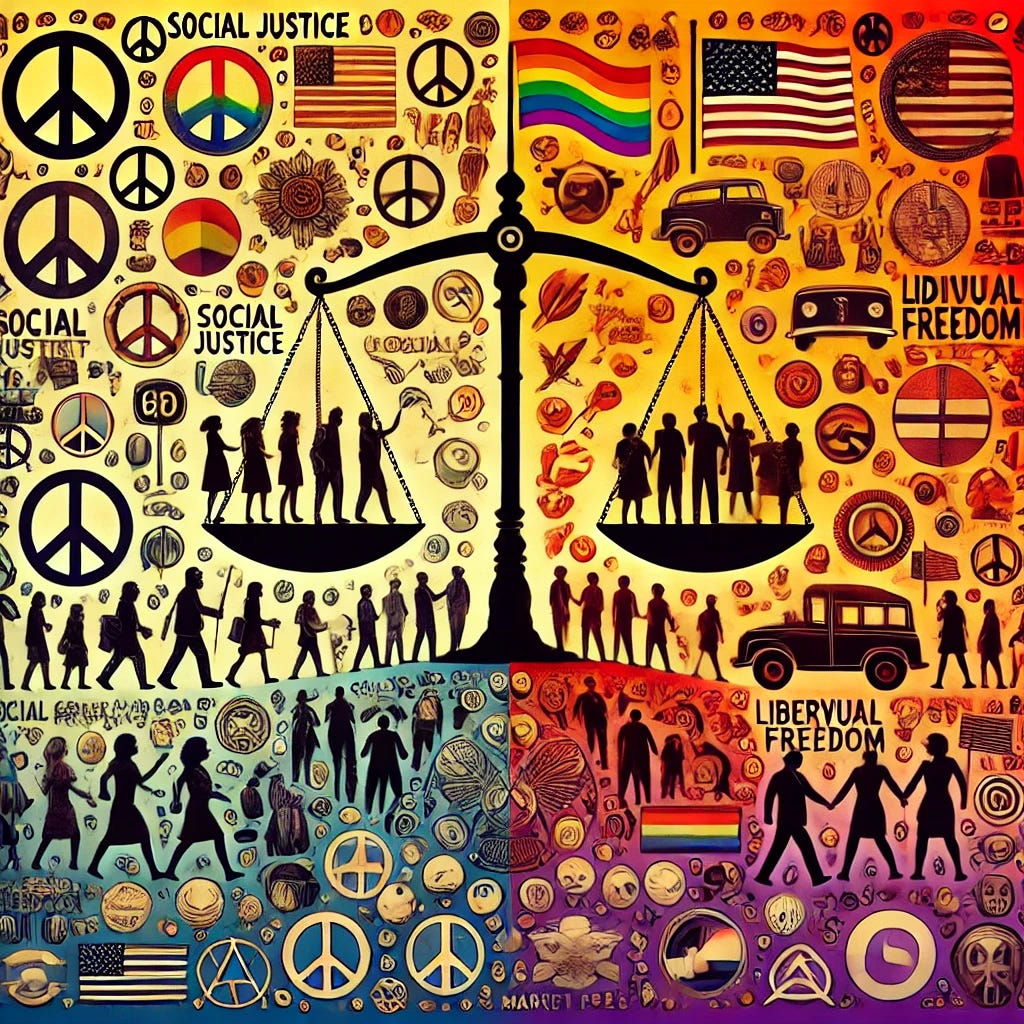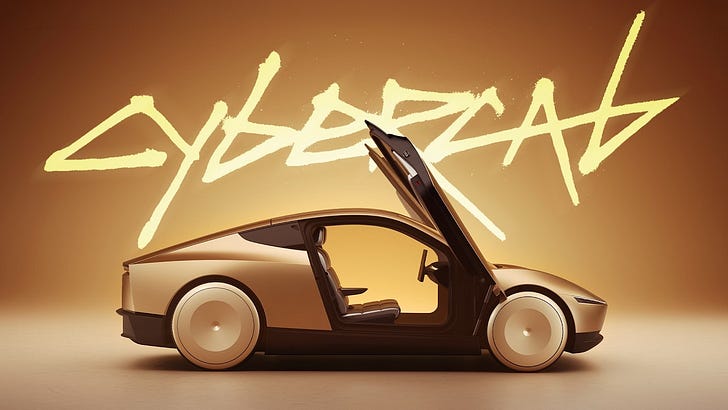On a balmy afternoon in the summer of 1968, a young protester named Lorraine hurried through the streets of Berkeley, California. She was late for a rally against the Vietnam War, a hallmark event in a decade exploding with social upheaval. Around her, placards for civil rights, women’s liberation, and anti-establishment counterculture jostled in the heat. Speeches boomed through megaphones, echoing across a sea of bright tie-dye shirts. The air crackled with the energy of youth demanding big changes—and fully believing they could happen.
Fast-forward to the modern day, and it might feel like the world’s moral compass has spun more than a few times since Lorraine marched. We’ve seen the rise of “woke culture,” a global wave of awareness around issues like systemic racism, gender identity, and income inequality. But now, in the 2020s, a new tide appears to be rolling in—a shift toward right-leaning, libertarian-inspired thinking. The promise? More economic freedom, fewer government mandates, and a belief that individual choice might solve problems better than large bureaucracies ever could.
This might sound like just another pendulum swing in politics. Yet when we look deeper—through the lens of history, generational attitudes, and the complexities of modern technology—a more intricate story emerges. It’s a story about how social movements can lose steam, how people adapt when ideals fall out of favor, and why an open mind might be our best guide through whatever happens next.
Looking Back: Seeds Planted in the 1960s
Lorraine eventually got her wish; the antiwar movement spread worldwide, changing the conversation on foreign intervention. By the time the dust of the 1960s settled, the United States had passed landmark civil rights legislation, second-wave feminism was in full swing, and a thriving counterculture had taken hold. For many, it felt like a grand victory of justice and equality. And indeed, the reverberations of that era still shape our definitions of personal freedom and rights.
But the 1970s and 1980s introduced new voices—Margaret Thatcher in the UK and Ronald Reagan in the U.S.—who championed a return to smaller government and free-market economics. For their supporters, these policies were a remedy to what they viewed as bloated state oversight and high taxes. Critics saw them as a betrayal of the progressive ideals of the previous decade. Either way, seeds were planted for a culture that prized individual liberty above all else—a notion that resurfaces today in libertarian circles.
Woke Culture Takes Center Stage
Cut to the early 2000s, and a new generation—often dubbed “Millennials”—came of age in a post-9/11 world. Growing up with social media, they harnessed online platforms not just to share memes and travel photos but to fight for environmental justice, LGBTQ+ rights, and an array of other causes. Whether organizing protests through tweets or crowdfunding for socially conscious projects, technology gave their voices wings. What some labeled “woke culture” brought conversations about privilege, historical inequality, and identity politics to the front page of mainstream media.
As the 2010s progressed, the term “woke” itself became politicized. For some, it meant taking necessary steps toward a more equitable society. For others, it symbolized a moral crusade that had gone too far—leading to polarized debates over free speech, cancel culture, and government intervention in social and economic issues.
Then came another shift: While the conversation around social justice intensified, global economic frustrations simmered. Occupy Wall Street highlighted growing income disparities and questioned the fairness of the financial system. That skepticism about government and elite institutions—whether banks or bureaucracy—would soon coalesce into a wave of renewed interest in libertarian ideas.
The Current Turn: Embracing Libertarianism?
Today, emerging political figures like Argentina’s Javier Milei have garnered attention by railing against central banking, high taxes, and public debt. Social media brims with videos of young voters echoing these libertarian sentiments, demanding less red tape and more freedom. In the United States and parts of Europe, a parallel shift is underway: People question extensive government spending and wonder if the state’s role in personal decisions has grown too large.
From a historical perspective, it’s easy to see echoes of the post-1960s conservative pivot. But unlike then, the conversation now is global, instantaneous, and hyper-scrutinized. TikTok videos of 20-somethings championing Austrian economics can reach millions overnight. Climate activists, once firmly attached to regulatory approaches, now explore market-driven solutions. Gen Z—digitally native and inherently global—finds itself at this crossroads, blending progressive social ideals with a deep suspicion of any institution that claims to know best.
Generational Lens: An Evolving Tapestry
One way to understand these ideological waves is to look at how different generations perceive authority and social responsibility. Baby Boomers like Lorraine, once the fiery activists of the 1960s, may now be more concerned with economic stability in their retirement years. Generation X, growing up amid corporate scandals and Cold War anxieties, generally nurtures a healthy distrust of big governments and big businesses alike. Millennials, weighed down by student debt and recession woes, initially embraced woke culture but now question whether government solutions have truly improved their lot. Meanwhile, Gen Z—looking around at a world plagued by climate fears and social unrest—often craves new answers that can cut through political gridlock.
The youngest among us, Generation Alpha, is just starting to form its worldview in a reality shaped by online learning, rapid technological change, and heated public debate over who should solve society’s biggest problems—governments, markets, or the people themselves?
Embracing or Resisting: It’s Personal
It’s tempting to view these shifts in purely abstract terms: policy proposals, political labels, election statistics. But at the heart of every ideological transformation lies the personal experience—what resonates with you, what helps you thrive, and what you see as a threat to your well-being or freedom.
For some, the libertarian ethos of smaller government and individual entrepreneurship is a breath of fresh air. It promises autonomy, innovation, and an escape from red tape. For those who worry about inequities in healthcare, education, and social welfare, however, the idea of weakening government can be alarming, signaling the loss of an already precarious safety net.
There’s also the question of cultural identity. Could a hands-off approach in policy accidentally lead to deeper social divisions, or might it pave the way for more voluntary community support? Some hold tight to the achievements of woke culture—hard-earned progress for women, minorities, and the LGBTQ+ community. Others yearn for a measure of cultural equilibrium, believing collective focus on identity has overshadowed more universal issues like the economy or personal freedoms.
The Power of an Open Mind
Throughout history, political and social tides ebb and flow. What looks like an unstoppable revolution one decade might be overshadowed by a different wave in the next. The real question is: How do we respond when the cultural winds shift?
Stay Curious. Just as Lorraine learned during her antiwar protests, understanding what drives a movement begins with asking why people are so passionately involved.
Question Your Assumptions. When new ideas spark your interest—or raise your hackles—take a moment to explore the evidence. Is there a historical context or empirical data that challenges your perspective?
Cultivate Dialogue. The most significant changes often occur not from shouting matches but from meaningful conversations. Seek out voices that differ from your own.
Engage with Emerging Solutions. As Gen Z and Generation Alpha step onto the world stage, they blend progressive ideals with market-based approaches. Maybe climate action can align with entrepreneurial zest. Perhaps a reduced government role can coexist with robust social initiatives.
Of course, an open mind doesn’t mean abandoning core values. It simply means recognizing that new situations might require recalibrated solutions. Whether you see yourself as libertarian-leaning, socially progressive, or somewhere in between, acknowledging that we’re in a period of transition helps us craft more effective, inclusive paths forward.
Conclusion: A Shifting Legacy
Many years have passed since Lorraine’s youthful excitement in the streets of Berkeley. She’s older now, watching her grandchildren navigate a world where ideological battles play out on smartphones as much as in city squares. She sees reflections of her own activism in the fervor of youth, but she also senses the allure of new economic narratives promising liberation through personal choice.
We stand at a crossroads: the momentum of woke culture on one side, an upswing of libertarian thinking on the other, and countless hybrid possibilities in between. None of us can say with certainty which vision of society will become dominant, nor should we want to stifle the conversation before it fully unfolds. Because history teaches us that real progress—however you define it—rarely comes from shutting down debate or clinging to orthodoxy. It comes from creative synthesis, from taking the best of what has come before and adapting it to new contexts.
So the invitation stands: Keep an open mind. Recognize what you value and what you fear. Ask what might be gained or lost if we place more power in individual hands—or if we choose to bolster collective safety nets. Above all, remember that shifts in social and political landscapes have always been part of the human experience. Far more interesting than predicting who “wins” is deciding how each of us will engage, learn, and grow with every turn of the tide.
By choosing to embrace the complexity, we choose to remain curious about the many paths our societies can take—and that might just be the most hopeful stance of all.












Share this post